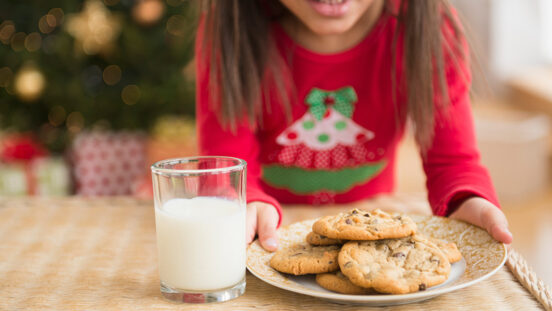Breastfeeding and the COVID-19 vaccination, here’s what you need to know
Expert advice from the Australian Breastfeeding Association.
In Australia, and around the world, 70 to 80% of health workers are women – many will be breastfeeding. Fortunately, there are very low rates of COVID-19 infection in Australia.
What is known so far about vaccines and breastfeeding generally, and about the COVID-19 vaccines specifically, suggests that where there is a risk of COVID-19 infection, the benefits of vaccination of breastfeeding women outweighs the risks.
However, breastfeeding women in Australia may choose to wait until research from countries like the UK and USA, where breastfeeding women are being vaccinated, becomes available.
On Wednesday 3 February, the ABA hosted the Breastfeeding and COVID-19 Live Panel to provide a platform for discussion on the process of vaccination trials and policy development and offer up-to-date information regarding breastfeeding in the context of COVID-19.
To inform this discussion, the ABA engaged Australian experts in breastfeeding, vaccination communication, and infant and young child feeding in emergencies helping to guide:
- Breastfeeding womens’ decision making about whether to get vaccinated or not, and
- Health professionals to enable breastfeeding mothers in their decision making.

The benefits of vaccination of breastfeeding women outweighs the risks.
At the time of the panel event, Australian Government Department of Health guidance regarding COVID-19 vaccination for breastfeeding mothers remained unclear, however has since been updated to recommend breastfeeding women can receive the Pfizer (Comirnaty) COVID-19 vaccination at any time, and do not need to stop breastfeeding before or after the vaccination.
Naomi Hull, ABA’s Senior Manager of Breastfeeding Information and Research, says, “The ABA continues to seek clarity for breastfeeding mothers on the COVID-19 vaccine and its rollout. Seeking to provide the community with context around the vaccine’s mechanisms of action and their personal risk levels, enabling breastfeeding women to weigh up the pros and cons when considering the vaccination.”
Advocacy on inclusion of women in medical trials
Breastfeeding women were specifically excluded from the COVID-19 vaccine trials and therefore there is no data about the safety and effectiveness of COVID-19 vaccines on breastfeeding women and their babies.
There needs to be a cultural shift that includes pregnant and breastfeeding women in clinical vaccine trials. Women need to be protected by research, not protected from research.
Without specific research, disproportionate responsibility is put on breastfeeding women to weigh the risks of being vaccinated against the risks of not being vaccinated. In the absence of data from vaccine trials, mothers are being told it is their choice whether they get vaccinated or not.
In response to this, Nina Chad, Infant Feeding Consultant at the World Health Organization says, “It is unethical for providers to abandon their patients to make the decisions by themselves”.
Nina continues: “Leaving the decision making up to the mother ‘sounds like it is respecting a woman’s autonomy [but] really what it’s doing is abandoning her to make a decision, to filter information that expert health authorities have found too difficult to process for themselves.’”




